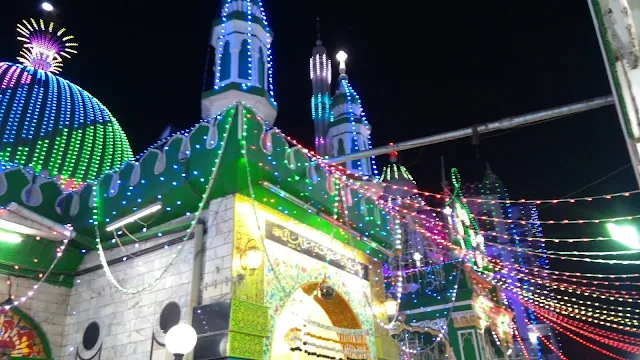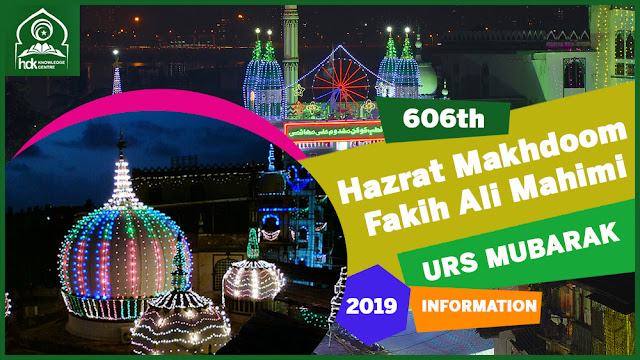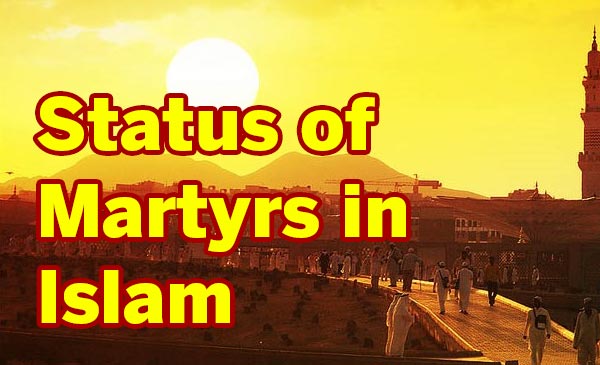Hadiths on Salat, Paradise and Hazrat Abu Bakr
Once The Holy Prophetﷺ said: "Whoever is among the people of prayer will be called to Paradise from the door of prayer. Whoever is among the people of jihad will be called from the door of jihad. Whoever is among the people of sadaqah will be called from the door of sadaqah. Whoever is among the people of fasting will be called from the door of Fasting." During this discousre, Hazrat Abu Bakr رضي الله عنه asked " Ya RasoolAllahﷺ, Is there anyone who will be called from all the doors of Jannah? For which Rasool e Kareemﷺ said; “Yes O Abu Bakr, and I hope that you will be amongst them.”
Some pearls from this Hadees.
1. Syyiduna Abu Bakr Siddeeq رضي الله عنه was given the glad tidings of Paradise by The Holy Prophetﷺ in this world, thus knowing the destiny of Hazrat Abu Bakr Siddeeq رضي الله عنه
2. All the doors of Jannah do recognize and love those Noble people.
3. Hazrat Abu Bakr Siddeeq رضي الله عنه believed that ALLAH has bestowed His Habeeb ﷺ the knowledge all the people and their final abodes.
4. Even the wishes and the nature of the voice of the Doors of Paradise are apparent to Nabi e Kareemﷺ.
5. Sahaba of Nabi e Kareemﷺ didn’t object on the question of Hazrat Abu Bakr Siddeeq رضي الله عنه thus having the same belief on the Ilm ul Ghayb of Nabi e Kareem ﷺ.
6. By recording this Hadees, Imam Bukhari and other Masters of Hadees too agree on Ilm ul Ghayb of Nabi e Kareemﷺ
7. Those who deny the above facts are away from the Path of Sahaba and of Awliya, thus away from the essence of Imaan.
May ALLAH protect our Imaan by the Waseelah of Sayyiduna Abu Bakr Siddeeq رضي الله عنه
Once The Holy Prophetﷺ said: "Whoever is among the people of prayer will be called to Paradise from the door of prayer. Whoever is among the people of jihad will be called from the door of jihad. Whoever is among the people of sadaqah will be called from the door of sadaqah. Whoever is among the people of fasting will be called from the door of Fasting." During this discousre, Hazrat Abu Bakr رضي الله عنه asked " Ya RasoolAllahﷺ, Is there anyone who will be called from all the doors of Jannah? For which Rasool e Kareemﷺ said; “Yes O Abu Bakr, and I hope that you will be amongst them.”
Some pearls from this Hadees.
1. Syyiduna Abu Bakr Siddeeq رضي الله عنه was given the glad tidings of Paradise by The Holy Prophetﷺ in this world, thus knowing the destiny of Hazrat Abu Bakr Siddeeq رضي الله عنه
2. All the doors of Jannah do recognize and love those Noble people.
3. Hazrat Abu Bakr Siddeeq رضي الله عنه believed that ALLAH has bestowed His Habeeb ﷺ the knowledge all the people and their final abodes.
4. Even the wishes and the nature of the voice of the Doors of Paradise are apparent to Nabi e Kareemﷺ.
5. Sahaba of Nabi e Kareemﷺ didn’t object on the question of Hazrat Abu Bakr Siddeeq رضي الله عنه thus having the same belief on the Ilm ul Ghayb of Nabi e Kareem ﷺ.
6. By recording this Hadees, Imam Bukhari and other Masters of Hadees too agree on Ilm ul Ghayb of Nabi e Kareemﷺ
7. Those who deny the above facts are away from the Path of Sahaba and of Awliya, thus away from the essence of Imaan.
May ALLAH protect our Imaan by the Waseelah of Sayyiduna Abu Bakr Siddeeq رضي الله عنه







































































